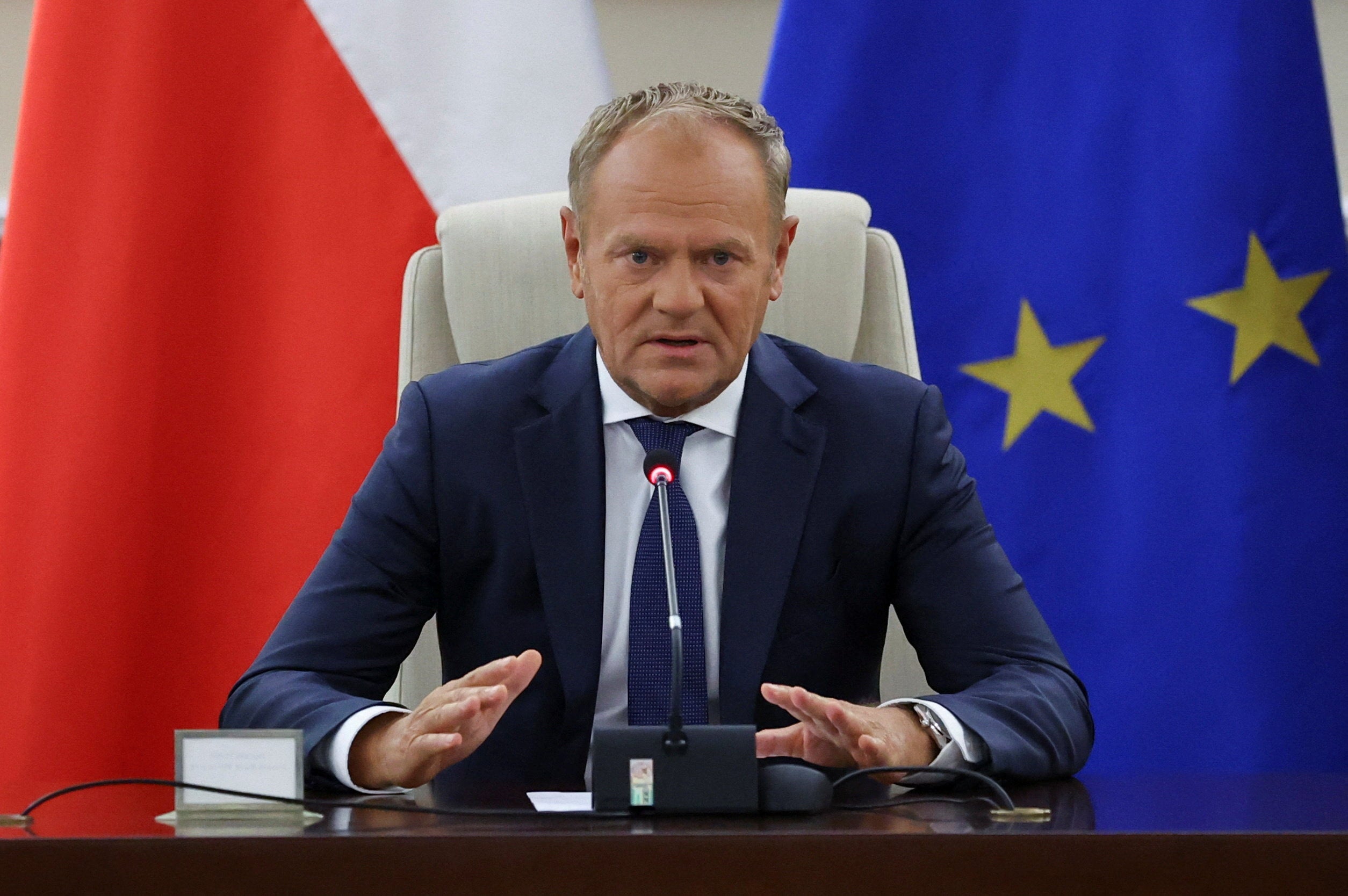On the face of it, the intrusion of Russian drones into Polish airspace overnight would appear to be an open and shut case for invoking Nato’s famous Article 5, which, as commonly summed up, means that an attack on one is deemed an attack on all and warrants a corresponding response.
This guarantee is much of the reason why, after the Soviet Union’s collapse, the newly independent states of eastern and central Europe wanted to join the alliance, and why Ukraine is so keen to do so now. Nato and Article 5 are seen as the gold standard of security guarantees.
Poland’s prime minister, Donald Tusk, was quick to warn that his country is at its closest to open conflict since the end of the Second World War. The incursion into Polish airspace was, he said, “a test Nato has to answer”.
When he reported to parliament a couple of hours later, this had been reduced to the charge that 19 Russian drones had entered the country's airspace, with “up to four” drones shot down by the Polish, Italian and Dutch jets sent to intercept them – the first time Russian military hardware has been shot down over the territory of a Nato country. The European Union called it a “reckless” violation by Russia. For Keir Starmer, it was a “barbaric attack on Ukraine” and an “egregious and unprecedented violation”.
And yet the relatively small number of drones points to an accidental rather than a deliberate incursion. Intent has to be a crucial element in whether what happened would reach the standard for an Article 5 response. This appears to be already accepted by Poland, which is reportedly talking about convening an emergency Nato meeting under Article 4, which provides for notification and consultation, rather than Article 5.
It is also worth noting that this is not the first time Russia has been accused of violating Polish territory in operations against Ukraine. In November 2022, the first autumn of the war, a missile landed on the Polish side of the Ukraine border, killing two people on the ground. Ukraine immediately called for Nato to invoke Article 5, but it turned out that Russia and the United States had already been in contact and established that the errant missile had, in fact, come from Ukraine. All talk of Nato action was dropped, although it was never clarified whether what happened was an accident or, as some claimed, a false-flag operation by Ukraine to try to precipitate a Nato response.

In short, while sometimes deploying fearsome rhetoric, Nato has hitherto been generally cautious about mounting any military response that could be seen as the start of an all-out conflict between Nato and Russia – in place of what is currently seen, by Russia at least, as a Nato-Russia proxy war.
Early indications are that Nato will take the same measured response this time. It will support Poland’s action in intercepting the drones, warn Russia about the risks of escalating the conflict, and stop at that. Ukraine will probably demand more aggressive action, but caution, at this stage, would be the most rational response.
All that said, there are elements of this episode that still need explaining. Some suggest that the drones might have been disoriented by Ukrainian (or Polish?) jamming; others that it could be a Ukrainian false flag – either possibility being a reason for Nato to exercise additional caution.
Another hypothesis, not entirely incompatible with the accident theory, is that Russia was probing Nato’s response to such violations. Last week Russia struck a government building in Kyiv for the first time – an attack variously interpreted as unintentional and a result of deflection by Ukraine’s air defences (the theory advanced by the mayor of Kyiv, Vitali Klitschko, who is hardly a friend of Russia), or a deliberate escalation on Russia’s part, signalling to Kyiv what it should expect if it does not accept Russia’s current terms for ending the war.
Escalation on the part of Russia and Ukraine, with Russia targeting cities outside eastern Ukraine, such as Lviv near the Polish border, which have hitherto largely been spared, is an entirely logical response to the prospect of peace talks, as each side tries to maximise its advantage before – it must be hoped – the firing stops.
Whether or not this latest incident was an error – ahead of a meeting in London of the E5 grouping of European nations of Britain, Poland, France, Germany and Italy – the risk is that such confrontations could increase, with the calls for Nato’s direct involvement becoming ever louder.







